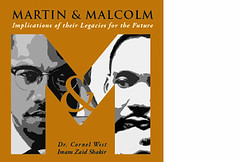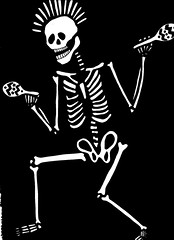This is an excerpt from Dave Zirin's new book, What's My Name, Fool?: Sports and Resistance in the United States (Haymarket Books, 2005).
No sport has chewed athletes up and spit them out -- especially black athletes -- quite like boxing. For the very few who "make it," it is never the sport of choice. Boxing has always been for the poor, for people born at the absolute margins of society. The first boxers in the United States were slaves. Southern plantation owners amused themselves by putting together the strongest slaves and having them fight it out while wearing iron collars.(click here for the full page on AlterNet)
After the abolition of slavery, boxing was unique among sports because it was desegregated as early as the turn of the last century. This was not because the people who ran boxing were in any way progressive. They make the people who run boxing today resemble gentlemen of great character. Those early promoters simply wanted to make a buck off the rampant racism in American society by pitting black vs. white for public spectacle. Unwittingly, these early fight financiers opened up a space in which the white supremacist ideas of the day could be challenged. This was the era of deeply racist pseudo-science. The attitude of the social Darwinist quacks was that blacks were not only mentally inferior but also physically inferior to whites. Blacks were cast as too lazy and too undisciplined to ever be taken seriously as athletes.
When Jack Johnson became the first black heavyweight-boxing champion in 1908, his victory created a serious crisis for these ideas. The media whipped up in a frenzy about the need for a "Great White Hope" to restore order to the world. Former champion Jim Jeffries came out of retirement to restore that order, saying, "I am going into this fight for the sole purpose of proving that a white man is better than a Negro."
At the fight, which took place in 1910, the ringside band played, "All Coons Look Alike to Me," and promoters led the nearly all-white crowd in the chant "Kill the nigger." But Johnson was faster, stronger, and smarter than Jeffries, knocking him out with ease. After Johnson's victory, there were race riots around the country -- in Illinois, Missouri, New York, Ohio, Pennsylvania, Colorado, Texas, and Washington, D.C. Most of the riots consisted of white lynch mobs attempting to enter black neighborhoods and blacks fighting back.
This reaction to a boxing match was the most widespread simultaneous racial uprising in the U.S. until the riots that followed the 1968 assassination of civil rights leader Dr. Martin Luther King Jr. Right-wing religious groups immediately organized a movement to ban boxing, and Congress actually passed a law that prohibited the showing of boxing films.

